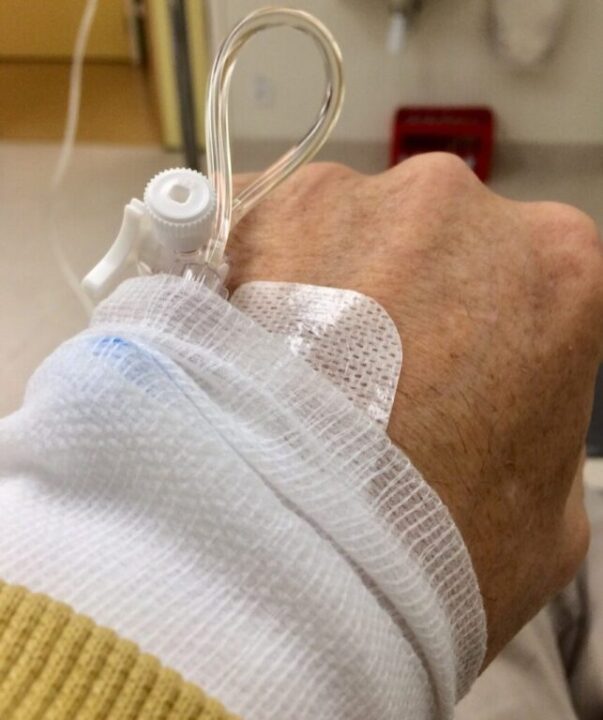In a story for the Urology Times, a panel of experts on the treatment of non-muscle invasive bladder cancer that is not responsive to Bacillus Calmette-Guérin (BCG) (which is commonly used after surgery to prevent recurrence of the tumor) discussed dealing with adverse events while using the immunotherapy pembrolizumab (marketed as Keytruda) to treat the cancer. A case study described the case of a patient who began experiencing joint weakness, fatigue, and constipation, which were identified as immune-mediated thyroiditis.
About Non-Muscle Invasive Bladder Cancer
Non-muscle invasive bladder cancer is cancer of the bladder that has not entered the bladder’s muscle layer. There are multiple types of bladder cancer, with the most common type being transitional cell carcinoma. There is no known direct cause of bladder cancer, but a number of risk factors have been identified. The strongest is tobacco smoking; others include being male, opium use, exposure to a number of widely used chemicals, family history, frequent bladder infections, and radiation therapy. Symptoms include painful urination, bloody urine, frequent urination, swelling of the lower extremities, and pain affecting the flank, bones, or pelvis. A number of treatments may be tried for non-muscle invasive bladder cancer, such as surgery, immunotherapy, and chemotherapy. Outcomes for non-muscle invasive disease are better than other forms of bladder cancer, with a five-year survival rate of 95 percent. However, around 70 percent will face recurrence and 30 percent will recur with muscle-invasive disease. To learn more about non-muscle invasive bladder cancer, click here.
The patient in the case study received steroid treatment for four weeks and saw her symptoms improve. Dr. Rauol C. Concepcion presented the case study for discussion. Mersadies Orr, CRNP, FNP-C said that in her limited experience with pembrolizumab, itching has been the most prevalent adverse effect:
“Systemic corticosteroids are typically recommended for any immune response while on treatment…But with any complaint or new side effects, I would often just interrupt therapy, and consider whether or not a steroid is indicated.” – Mersadies
Dr. Kelly Stratton has more experience prescribing the drug and says that while overall pembrolizumab is typically received favorably, there have been some cases of thyroiditis. However, she never needed to deploy steroids and instead starts thyroid replacement therapy for these patients. She reports that these patients present with asymptomatic hyperthyroidism during their thyroiditis. Thyroid replacement therapy also allows the patients to continue their treatment.
In Kelly’s experience, side effects while using pembrolizumab can show up in different ways, and keeping an eye on thyroid function is recommended. It’s a treatment that can require input from a team of specialists, such as an endocrinologist, gastroenterologist, neurologist, and nephrologist.
Dr. Sukumar Ethirajan says that while the treatment is usually administered in a hospital outpatient setting, he has also done some home infusions of the drug, which are well tolerated by older patients especially. He agrees with Kelly’s emphasis on having a specialist team as well as the importance of consistent feedback from the patient directly. Sukumar says that home infusions have gotten more attention since the COVID pandemic, and generally he waits until the patient has had a few doses and is stable on the medication.
Rauol concludes the conversation by emphasizing that immunotherapies will continue to play a more important role in the future as patients see improvements in their survival times.





